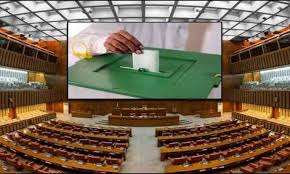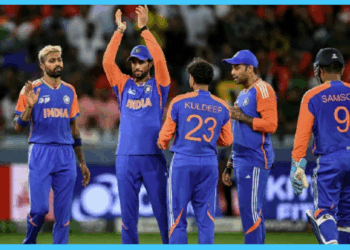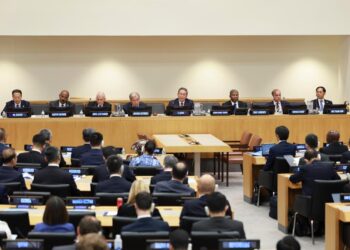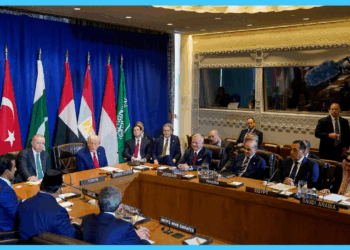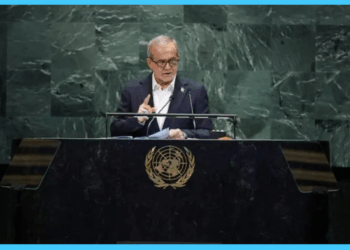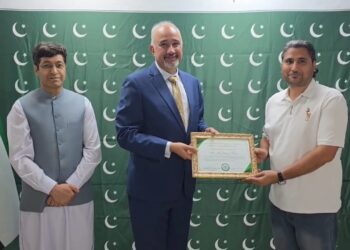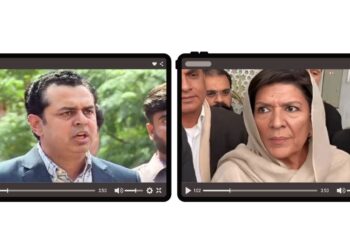PESHAWAE; In a significant political development, the Pakistan Tehreek-e-Insaf (PTI)-led government in Khyber Pakhtunkhwa (KP) emerged victorious in the Senate elections, clinching six out of eleven available seats.
The remaining five were secured by the joint opposition, comprising the Pakistan Muslim League-Nawaz (PML-N), Pakistan Peoples Party (PPP), and Jamiat Ulema-e-Islam-Fazl (JUI-F), according to unofficial and unverified results released Monday.
The Senate elections, held after a prolonged delay due to legal and procedural hurdles, saw full participation from all 145 members of the KP Assembly.
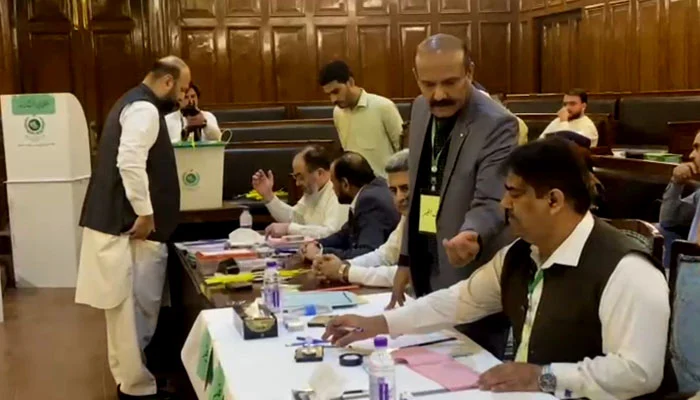
Four general seats went to PTI candidates — Murad Saeed (26 votes), Faisal Javed (22 votes), Mirza Afridi, and Noorul Haq Qadri (21 votes each). The opposition managed to claim the remaining three general seats, won by PML-N’s Niaz Ahmad, PPP’s Talha Mehmood, and JUI-F’s Atta-ul-Haq.
For the two seats reserved for women, PTI’s Rubina Naz secured a clear victory with 89 votes, while PPP’s Rubina Khalid claimed the second spot.
On the technocrat front, PTI’s Azam Swati and JUI-F’s Dilawar Khan were declared winners. With these results, PTI captured four general seats, one technocrat seat, and one women’s seat. Meanwhile, the opposition collectively secured three general, one technocrat, and one women’s seat.
The successful conduct of the KP Senate elections followed a key political maneuver by Chief Minister Ali Amin Gandapur, who managed to convince four disgruntled PTI members to withdraw from the race, averting a potential intra-party contest.
The situation had threatened to split the PTI vote and weaken the party’s hold in the Upper House. However, not all dissenters complied — Khurram Zeeshan refused to step aside and ran as an independent candidate.
This development comes after months of political gridlock in KP, where a dispute over the swearing-in of reserved seat members had delayed Senate elections. The oath-taking of these members on Sunday finally paved the way for the electoral process.
In Punjab, the PML-N continued to assert its dominance, with its candidate Hafiz Abdul Karim winning the Senate by-election with 243 votes, outpacing opposition-backed Mehr Abdul Sattar, who secured 99.
A total of 345 votes were cast out of the 368-member Punjab Assembly, with three votes rejected. Punjab Chief Minister Maryam Nawaz also participated in the polling process, which was conducted at the Punjab Assembly and overseen by the Provincial Election Commissioner acting as the returning officer.
The by-election in Punjab was necessitated by the death of Professor Sajid Mir, a senior leader of the Markazi Jamiat Ahl-e-Hadith. Apart from the main contenders, two independent candidates — Khadija Siddiqi and Ijaz Hussain — also contested the seat.
While PTI celebrated its gains in KP, internal tensions have flared up within the party. Reports emerged of a fresh controversy over the Senate candidate list, with accusations that senior PTI leaders deliberately withheld the finalized list from party founder Imran Khan, who is currently incarcerated.
According to party sources, the list submitted by the KP chapter on July 15 included names such as Murad Saeed, Irfan Saleem, Faisal Javed, and Khurram Zeeshan. However, this list allegedly never reached Khan.
Senior figures including PTI Chairman Barrister Gohar Ali Khan and KP government spokesperson Barrister Saif are being accused of bypassing the official recommendations in favor of alternative candidates, including Mirza Afridi, whose name was reportedly not on the original list.
These revelations have triggered discontent within party ranks, highlighting ongoing challenges in internal governance and transparency. Barrister Gohar has strongly denied the allegations, stating that he neither tampered with the list nor concealed it from the PTI founder.
The Senate elections serve as a critical indicator of party strength in the provinces, as the Upper House plays a vital role in national legislation.
For PTI, retaining a majority in KP — despite internal discontent and ongoing legal challenges — is a significant political boost. However, controversies surrounding candidate selection and intra-party unity may continue to plague the party as it prepares for the next phase of national politics.








